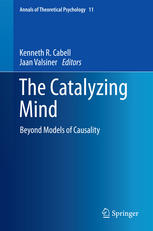

Most ebook files are in PDF format, so you can easily read them using various software such as Foxit Reader or directly on the Google Chrome browser.
Some ebook files are released by publishers in other formats such as .awz, .mobi, .epub, .fb2, etc. You may need to install specific software to read these formats on mobile/PC, such as Calibre.
Please read the tutorial at this link: https://ebookbell.com/faq
We offer FREE conversion to the popular formats you request; however, this may take some time. Therefore, right after payment, please email us, and we will try to provide the service as quickly as possible.
For some exceptional file formats or broken links (if any), please refrain from opening any disputes. Instead, email us first, and we will try to assist within a maximum of 6 hours.
EbookBell Team

4.3
28 reviewsHow do we understand and explain phenomena in psychology? What does the concept of “causality” mean when we discuss higher psychological functions and behavior? Is it possible to generate “laws” in a psychological and behavioral science—laws that go beyond statistical regularities, frequencies, and probabilities? An international group of authors compare and contrast the use of a causal model in psychology with a newer model—the catalytic model. The Catalyzing Mind: Beyond Models of Causality proposes an approach to the qualitative nature of psychological phenomena that focuses on the psychological significance and meaning of conditions, contexts, and situations as well as their sign-mediating processes. Contributors develop, apply, and criticize the notion of a catalyzing mind in hopes of achieving conceptual clarity and rigor. Disciplines such as philosophy, psychology, semiotics and biosemiotics are used for an interdisciplinary approach to the book. Research topics such as history and national identity, immigration, and transitions to adulthood are all brought into a dialogue with the concept of the catalyzing mind. With a variety of disciplines, theoretical concepts, and research topics this book is a collective effort at an approach to move beyond models of causality for explaining and understanding psychological phenomena.